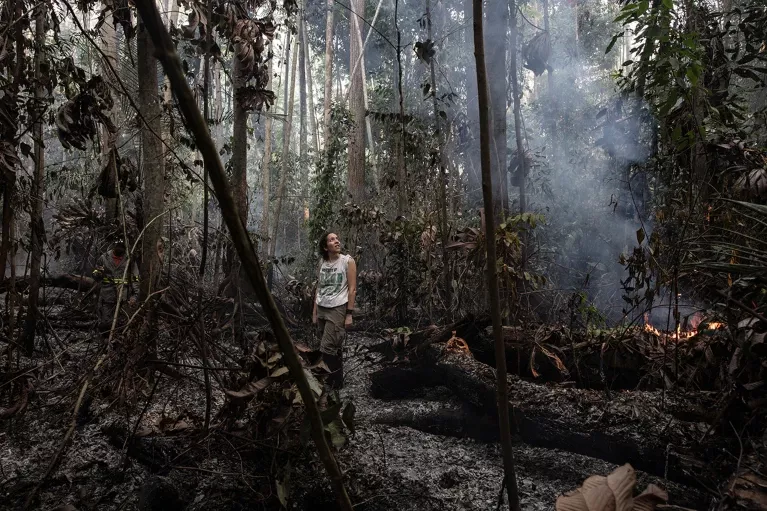To cope with the emotional toll of working in the field, researchers have developed strategies to help themselves and others.
Many climate scientists and professionals face eco-anxiety in their daily work - an issue that is on the rise and is worsening mental-health disorders in the general population. Young adults are particularly affected. In a 2021 survey of 10,000 people aged between 16 and 25 years old in 10 countries, almost half said that climate distress affected their ability to sleep and work.
There is a growing body of research around the intersection of climate change and mental health - but climate scientists’ well-being rarely comes under the microscope. When it does, the results are stark. For instance, only 6% of 380 lead authors and review editors for the Intergovernmental Panel on Climate Change (IPCC) think that the 1.5 °C warming limit set by the 2015 Paris climate agreement can be achieved, according to a May survey by UK newspaper The Guardian. Most said they felt distress and frustration over how the climate crisis is being handled worldwide.
“Climate researchers are grappling every single day with important information,” says Robin Cooper, a member of the steering committee at the Climate Psychiatry Alliance, an independent group of psychiatrists and mental-health professionals, who is based in San Francisco, California.
And if they allow themselves to tolerate the feelings they are going through, they will need to manage the implications of what their science is showing them. That’s a big, big intrusive stress.”
Cooper considers the stress that climate scientists face to be similar to that which affects first responders in climate disasters.
They are a vulnerable population, a group that is exposed in very serious ways to the reality of climate change.”
Such exposure can be damaging in the long run. Stress is an essential survival mechanism in response to acute risk - but constant exposure takes its toll on physical and mental health. The continuous activation of stress hormones can contribute to conditions ranging from high blood pressure to depression and addiction. Cooper says that humans can- not absorb the long-term, sustained threats of environmental disasters.
Climate stress and anxiety are more persistent and more chronic than are other stressors that humans experience, Cooper says. “And that is not the way our biology is wired.”

Dr Erika Berenguer, a senior ecosystems researcher at the Environmental Change Institute at the University of Oxford, has felt the consequences of this insidious burden. She studies the effects of fire on trees in the Amazon and finds it difficult to witness the rainforest’s decline.
The first time I felt deep sadness was in 2015, when about one million hectares of forest got wiped out by fire. In the field, I went to sleep each night and woke up each morning shrouded in smoke and ashes from the corpses of a dying forest.
Once back home, a colleague told her that she was experiencing grief for the forest. “The feeling hasn’t gone away since then,” she adds.
After her most recent fieldwork season, in November 2023, after a record number of fires that October, Berenguer’s stress led to physical symptoms. At first, she had itchy blisters on her feet. Then she had to be treated for gastroparesis, a condition that affects the movement of the stomach and intestinal muscles, causing nausea and vomiting.
Exercising by rowing helps Berenguer to clear her head, but it doesn’t bring long-term relief.
Burnt forests tell the story of a past that is no more, and of an unfortunate future for most of the Amazon. It’s profoundly painful not to be able to change it. Detaching from the problem is not an option.
Scientists have to bear witness to the loss of ecosystems, measure the impact of destruction and natural recovery — and we’re responsible for proposing some solutions to the problem as well. We have to be there."
Berenguer notes, however, that the risk-assessment forms that researchers fill in before going into the field cover only physical hazards, not mental health. “Who is going to protect us from seeing the world’s largest rainforest burn?” she asks.
Fieldwork insurance “doesn’t cover psychotherapy, and this is something climate and Earth scientists need to have a serious discussion about”, she adds.
The article above is an extract from a Career Feature in the journal Nature. Read the feature: ‘Who will protect us from seeing the world’s largest rainforest burn?’ The mental exhaustion faced by climate scientists

